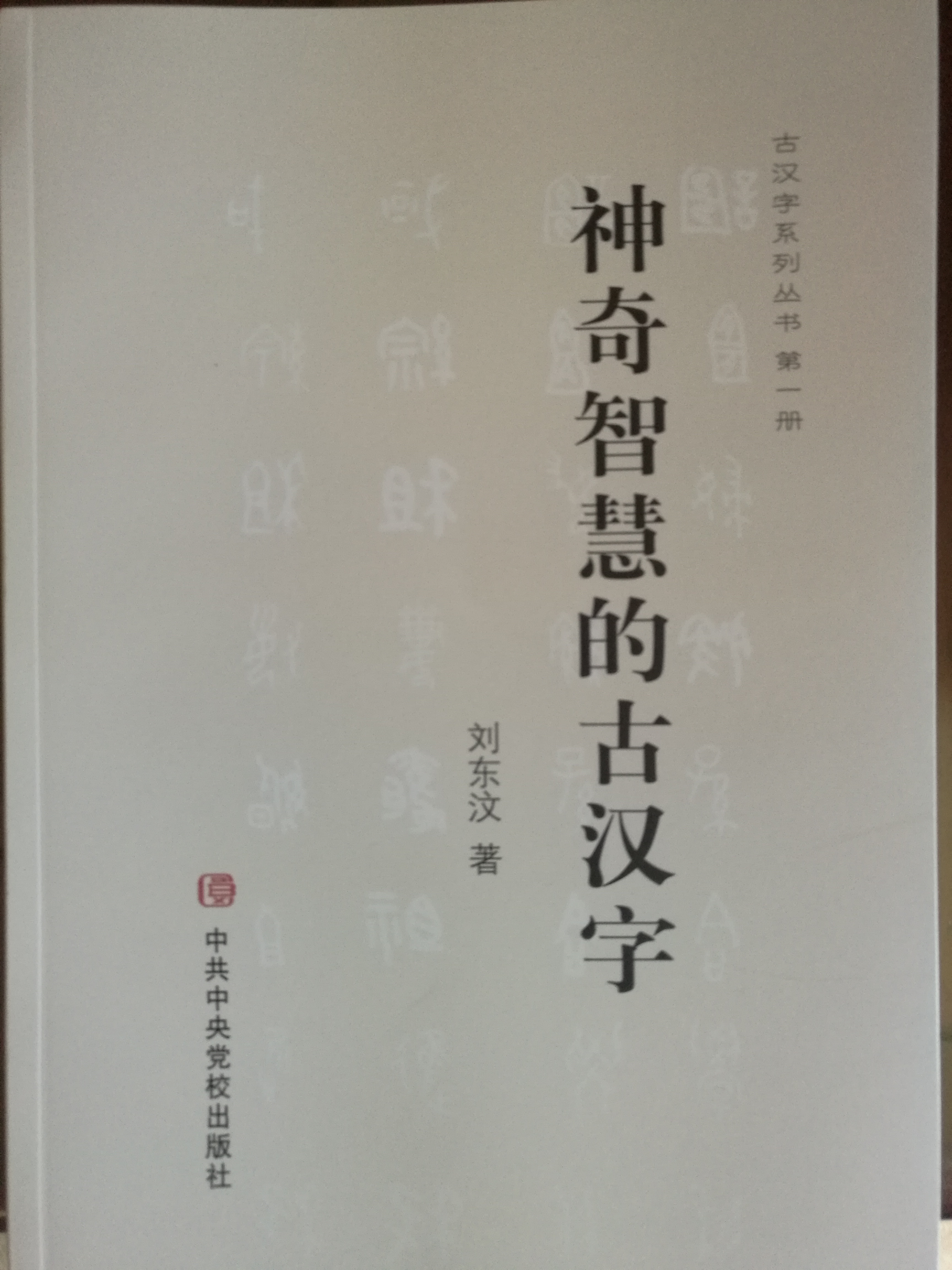
贯:毌guan+贝。pass through:毌+cowry
“毌”是铜钱中间有穿孔的象形文字。“贯”字,指的是古时在使用刀币进行交换时,感到刀币体积和重量较大,携带不便,于是逐渐采取用圆形的青铜币取代了刀币。
“毌” is a kind of hieroglyphics with holes in copper money.。"clunky" In ancient times, when the knife coin was exchanged, the size and weight of the knife coin was large and it was inconvenient to carry it, so it gradually adopted the round bronze coin instead of the knife coin.
从秦朝开始,一直到清朝完结,铜钱就成为国家发行的主要在民间百姓间流通的货币。铜币即铜钱,是一种体积比较小,重量比较轻的圆形货币,这种圆形货币,直径一般是2厘米左右,中间有5毫米见方的方孔,人们将铜钱用绳索串起来以便携带交易和保存。一般每一千个铜钱串在一起,俗称一贯钱。铜钱因此也称为“孔方兄”。
From the Qin Dynasty to the end of the Qing Dynasty, copper became the main currency issued by the state. Copper coin that is copper money, is a relatively small, lighter circular currency, this circular currency, the diameter is generally about 2 centimeters, the middle of the square hole of 5 millimeters square, people string copper money with ropes in order to carry the transaction and preservation. Usually every thousand copper money together, commonly known as consistent money. Copper money is therefore also known as "Kong Fang".
贯字本义是:用绳索穿起来的一串铜钱。引申后,“贯”字有贯通、连贯、贯注、贯彻等含义。
Interleaved character The original meaning is:A string of copper money tied up with a rope. After extension, the word "Guan" has the meanings of continuity, attention and implementation.
由贯字组成的词组有:贯彻、一贯、贯通、连贯、腰缠万贯、贯穿、贯串、贯通、连贯、贯注、贯彻、贯珠、鱼贯而入、籍贯等。
The phrase consists of: carry through, consistent, through, coherent, rich, through, into, and into, the place of origin, and so on, "consistent", "consistent" and "consistent".
實(实):宀(家,房屋)+贯。Real (real): (home, house) +贯(Guan).
實字指的是:家的住宅中放置有一贯贯的铜钱,这就是真实的“實”。
Solid word means: the house has a consistent place in the copper money, this is the real "reality."
“虚实”二字是非常抽象的二个字,The word "nothingness and reality"Is a very abstract word,
但是要把它们说清楚,要用形象而具体的东西来表述它们。古汉字用房屋里放置的一串串铜钱,这种再实实在在存在的东西,来說明“實”。既形象、具体,又真实。
But be clear about them and express them in terms of images and concrete things. In ancient Chinese characters, a string of copper money placed in a house, this kind of thing that really exists again.To illustrate the reality.Both image, concrete, but also true.
“实”字是家中存放的一贯贯铜钱,这是真实存在的东西。难道一贯贯铜钱还不是真实的和实在的东西吗?
The word "real"Is the home deposit of copper money, this is the real thing. Is it true that copper money is not real and real?
“虚”字是由“虎字头、业身”而组成的动物;"empty" word Is composed of "tiger head, karma body" and the composition of the animal;
在自然界里,那里有这种怪异的动物存在呢?当然这种动物是不存在的,是虚无缥缈的,因此这就是“虚”。
Where does this strange animal exist in nature? Of course, this animal does not exist, is illusory, so this is "empty."
虚实二字揭示了自然界和人类社会中,广为存在的虚实现象。用字形象、生动、具体;且一语中的。这就是古汉字的神通所在。
Empty and solid word Reveals the nature and the human society, the widespread existence of the phenomenon of reality. Vivid, concrete Use characters vividly, concretely, and in a single word. This is the magic of ancient Chinese characters.
實字本义:实际存在的东西。引申后,“實”字有坚实、实心、充实等含义。
Real word original meaning:Something that actually exists. After extension, the word "solid" has solid, substantial meaning.
由实字组成的词组有:实在、实际、诚实、实行、真实、实物、失实、实施、实践、事实、果实、坚实、实心、充实、虚实、实话、实惠、实体、实情、实数、实事求是、名实相符、结实、殷实、富实等。
The phrases composed of real words are:Truth, reality, honesty, practice, truth, object, misrepresentation, implementation, practice, fact, fruit, solidity, enrichment, vanity, truth, material benefit, entity, truth, number, truth from facts, name and fact, solid and solid, solid and solid, Rich, etc.
惯:忄+贯。be used to:Satellite + perforation
“惯”字指的是,心中对于家中房屋里放置的一贯贯的铜钱已经习以为常了,惯了。心理当中的“惯”与一贯贯的铜钱串起来的“贯”字,从二者形成上来看,有异曲同工之妙。
The word "habitual" means that one's heart is used to the consistent copper money placed in the house. "habitual" in psychology and "consistent" in copper money, from the formation of the two, there are similarities and differences.
铜钱要一个接一个的串起来,才能成之为贯。而一个人对某些现象习以为常、习惯起来,也是需要日积月累的,不能一蹴而就。比如一个幼儿生下来之后,就要有父母天天看管;到两三岁的时候又必须送幼儿园,由老师看管,一开始多数幼儿是不习惯的,而后通过幼儿园老师的关心和照顾,加上小朋友的友谊以及那里的生活活动的乐趣,适合幼儿的心理需要,因此,经过一段日子,幼儿不再哭闹了,并习惯和喜欢上幼儿园了。在幼儿时期,养成一个良好的习惯,会终身受益的。
Copper money has to be tied one after another in order to become a consistent one. And one takes certain phenomena for granted and becomes accustomed to them. For example, a child born after the need to have parents to watch over every day; At the age of two or three, they had to be sent to the kindergarten again, under the supervision of the teacher. At first, most of the children were not used to it, then through the care and care of the kindergarten teachers, plus the friendship of the children and the joy of living there, Suitable for children's psychological needs, therefore, after a period of time, children no longer cry, and used to and like kindergarten. In early childhood, develop a Good habits will benefit you all your life.
“惯”字本义是:通过日积月累形成的习惯、行为、思想方法等。引申后,“惯”字也指成年累月重覆同样一种行为的人。比如:惯匪、惯犯等。
The original meaning of the word "habitual" is: through the accumulation of habits, behaviors, methods of thought and so on. By extension, the word "habitual" also refers to a person who repeats the same behavior over and over again. For example: habitual bandits, recidivism, etc.
由惯组成的词组成的词组有:习惯、惯性、惯于、惯常、惯例、惯匪、惯犯、惯性、司空见惯、惯纵、宠惯、娇惯等。
The phrases consisting of habit, inertia, habit, convention, banditry, recidivism, inertia, commonplace, inertia, spoiled, etc.
掼:扌(手)+贯。Whipped: rolling + penetration
手上拿着一贯铜钱甩起来,而后类似于这种行为的,就称为“掼”,比如,摔跤里就有“掼”的动作,他把另外一个运动员“掼”倒了。
The man with the usual copper-money in his hand is called "whipped", for example, in wrestling, where he throws another athlete.
由掼字组成的词组有:掼纱帽、掼手榴弹、掼交等。
The phrases composed of whipped words are: whipped yarn cap, hand grenade, cross, etc.

